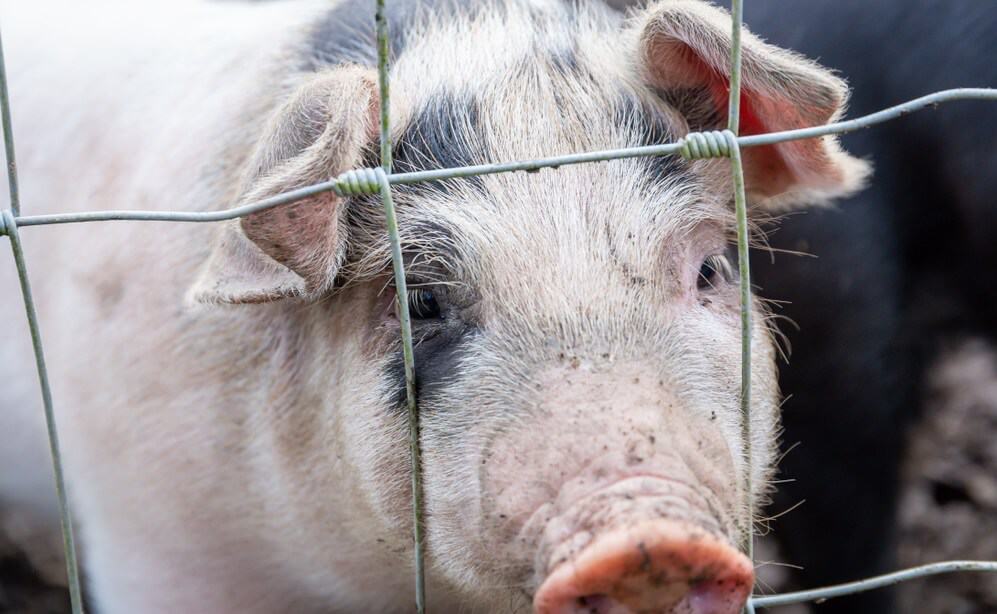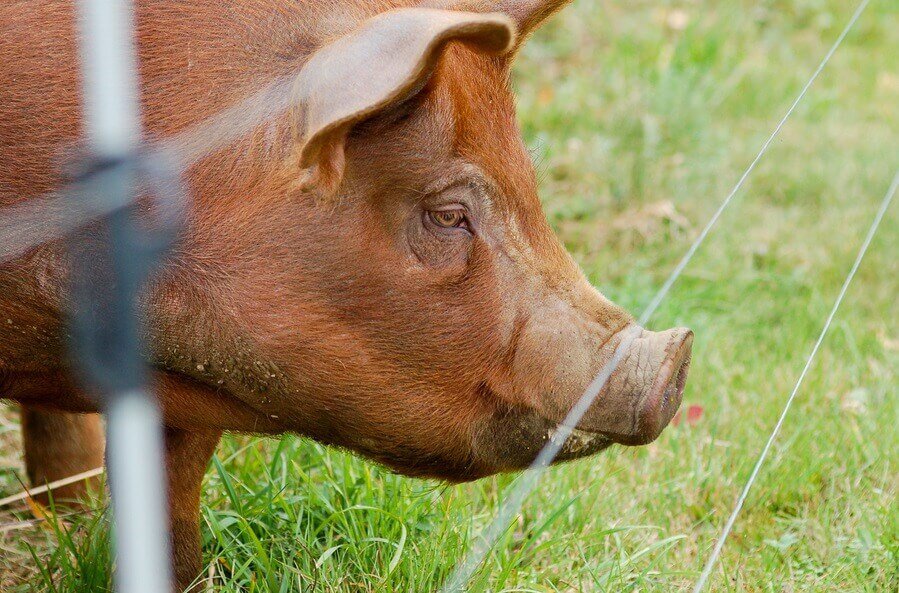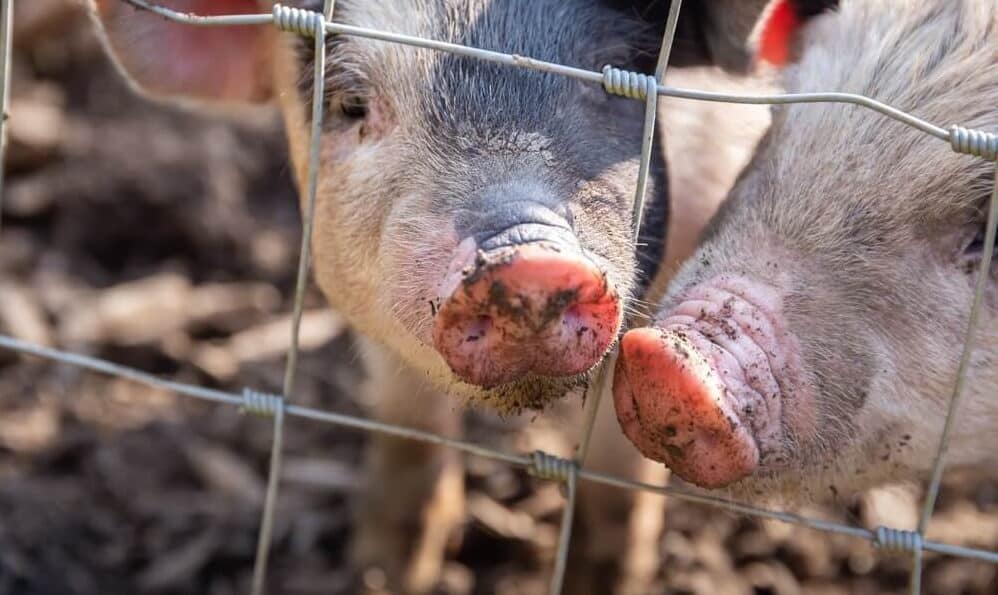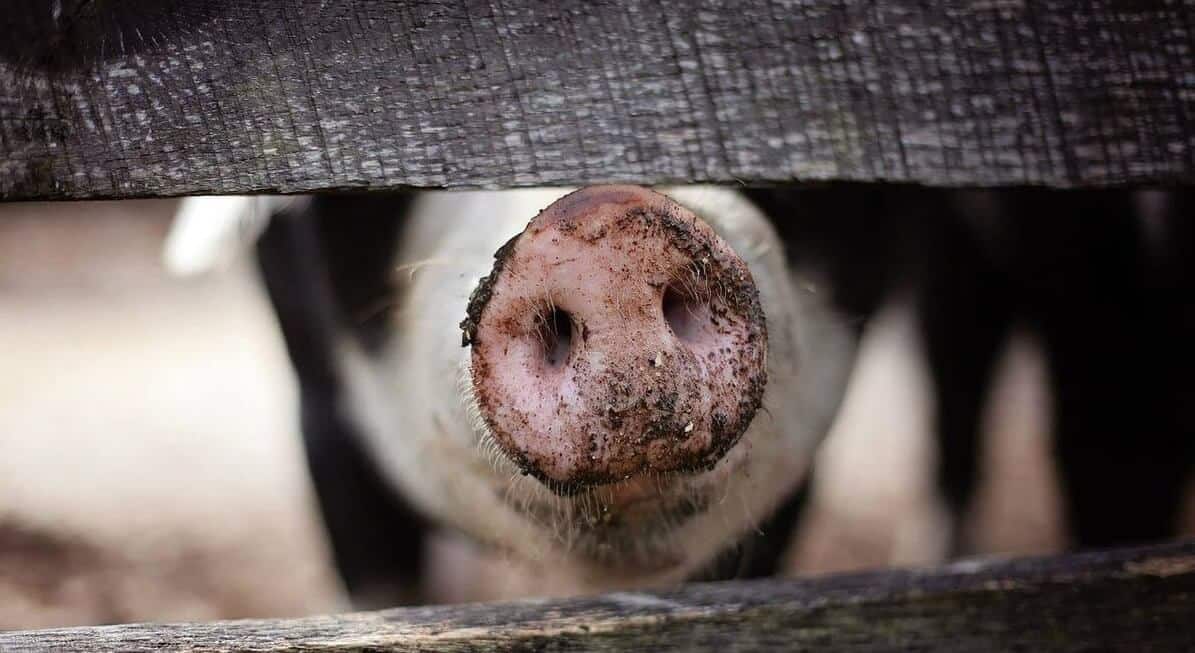If you intend to raise pigs, you will need fencing for pigs on your farm. There are several reasons why this is important. For starters, even the most domesticated pig breeds can go feral when left to roam freely on the land for too long. Another, and more important reason, is that some states forbid free-ranging pigs.
Even though states like California have strict laws on just how much space you can designate for your pigs, letting them roam can be a great option to add nutrients to your land.
It is good farm ergonomics to keep the farm animals contained within a shelter. Not only is this done for their protection from predators, but it can also be beneficial to their management regarding food, breeding and socialization.
There’s no doubt that fencing for pigs is important. The question remains: what kind of fencing is good for your pigs and your farm in particular?
Reasons for Pig Fencing
Before deciding which fencing for pigs is right for you, you should know a few things about pigs. For starters, they are curious and gifted escape artists. Pigs are highly intelligent creatures who seek ways to explore which can end up with them getting out of their enclosure.
On the plus side, if you provide your pigs with everything they need within their pasture, they’ll hardly ever find a reason to leave it. Here are just a few reasons pigs might want to escape a pasture:
- If they don’t have enough food
- They don’t have enough space to roam
- The pasture doesn’t have adequate fencing
- They don’t have enough water
- The pigs are curious about what else is out there
- They feel threatened in their own home

You will often find that pigs escape their fencing by chance. They were probably rooting for something by the fence line, and they got free while digging under the fence posts. These pigs almost always find their way back to the pasture, but this always poses a threat, especially if your farm is near a populated area or a treacherous landscape.
Knowing what pigs eat can help ensure they don’t escape their pasture to find more food.
What to Consider
There are some factors you need to consider when deciding which kind of fencing you need for your pigs:
- How many pigs do you intend to keep?
- Size of the pigs you intend to keep.
- How large is the space you have to keep the pigs?
- How often do you intend to move your pigs? (this needs to be done often when pigs are kept outside, in smaller pens, as pigs tend to create a great mess, especially if they stay in the same pasture for too long)
Types of Fencing for Pigs
With all this in mind, let’s look at some pig fencing options available today.
Permanent Fence
If you are raising pigs on a small farm and have no intention of moving them any time soon, then a permanent fence might be the best option. In that case, here are three options to consider:
- Fencing made of woven wire
- Welded wire fence
- Hog panels
These options are only economical if you have a small enough farm and don’t intend to keep too many pigs. However, keeping too many pigs in such an enclosed space will turn the entire area into mud within a few days.
Small enclosures works best if you intend to use your pigs as rototillers that clear up and turn the ground for other agricultural use later on. The downside is that this could lead to soil erosion or even internal parasites should you leave your pigs in the same spot for too long.
Farmers with limited space on their land would benefit most from permanent fencing. If you don’t have the space or option to move around the pigs, you will most likely keep them in the same space permanently. The pigs on your land would only need about 10 square feet of space for each.
If this is the path you choose, you can use a wide variety of fence posts, including metal posts and wooden posts that have been treated for rot.
Since pigs can’t jump very high, your fence height won’t need to be very tall. Around three feet should be adequate to keep the pigs fenced in. You must ensure that the fence posts are securely posted to the ground so the pigs can’t root underneath them. You will also want to keep in mind the size of the pigs you plan to keep in the enclosure. Make sure spaces between wires or posts, or wire and ground, are not too large where the smaller pigs can squeeze through.
Having a shorter fence is appropriate for pigs, but you will need to consider the threat of predators jumping over or climbing the fence. If you live in an area that has wildlife that will threaten your livestock, you might consider a taller fence, or adding a row or two of electric fencing or barbed wire.

Electric Fence for Pigs
If you are raising pigs in a large pasture, you might want to consider electric fencing. As mentioned, pigs are excellent escape artists but also quite smart. This means that they are probably going to test the kind of boundaries you have in place. A pig will quickly learn to respect an electric fence and refrain from trying to break free.
An electric fence, particularly a three-strand electric fence, is the best option if you have a large piece of land and would like to give your pigs some room to roam. There are several advantages to this:
- The domestic pigs have more room to find food within the pasture.
- Electric fences can keep predators out.
- You get to have a large parcel of your land fertilized by the hogs.
Furthermore, a three-strand electric fence wire is cost-effective to maintain. The three-strand electric wire fencing is a great containment measure as your pigs will be less likely to root under, walk through or even jump over the fence to escape. They’ll know to stay away from the hot wire.
Electric Netting for Pigs
If you plan on raising young piglets on your farm, you will be better off using electric netting. While this fencing is ideal for piglets, it’s almost useless for larger pigs as they can easily run through it.

It should also be noted that this kind of perimeter fence will be useless against larger wild predators and any large feeder pigs that might want to get to the piglets. So, this kind of fencing is not for protection so much as it is for containment.
Apart from containment, this kind of fencing material is a great introduction to electric fencing for young piglets. By the time they get old enough to forage with the other pastured pigs, they know what an electric fence looks like and respect it enough to stay within its bounds.
The best part is that electric fence kits are easily available at a reasonably affordable rate. You are, however, advised to use a professional installer when dealing with electricity.
Tips on How to Pig-Proof Your Fence
Whether you use barbed wire, hog wire, chicken wire, or high tensile wire to fence your pig pen, you should know that pigs are very smart and will test it. You can do a few things to pig-proof whatever kind of perimeter fence you put in place against your ever-curious pigs. These include:
- Inspect the fence regularly: This is true for any fence, but it is especially important for electric fencing. Look to see if any sections are shorted out or broken.
- Look for rooting: If you have used woven wire, hog panel fencing, or welded wire, you need to keep an eye out for spots that have been rooted up, as these may be exit points for the pigs or entry points for predators
- Use the right energizer: If you are keen on using electric fencing, ensure that you have the right energizer (at least two joules, even though six joules will work perfectly fine despite being a bit more expensive). Pigs have thick skin and if the shock is not strong enough, they will push through it.
- Dig a trench beneath the fence: This is a more expensive and takes a lot of time to set up, but it will keep your pigs from rooting underneath the perimeter fence. You can reinforce this trench with chicken wire or even concrete.
These are just a few tips and tricks to keep your pigs fenced in and contained within the pasture. Remember, you may need to move your pigs occasionally if they are rooting up the ground too much. Keeping these things in mind will help you choose the most practical and cost-effective fencing option for your farm. Raising various pig breeds can add value to your farm or homestead.

